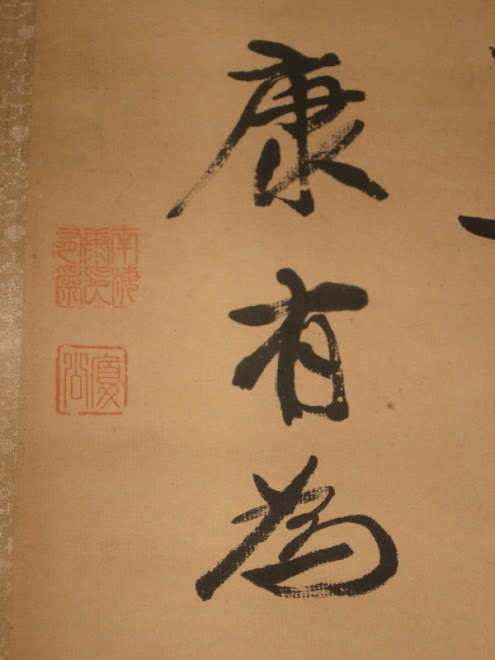For example, Lo ("Sequel," p. 198) writes:“By June 1905 [the fifth lunar month], feeling much better, [Kang] left Los Angeles for Washington, D.C., arriving there on June 10.” From local newspaper reports, supplemented by correspondence, we now know that Kang left Los Angeles on May 8 by train and stopped for speeches and meetings in Kansas City, St. Louis, Chicago, and Zion City, and arrived in Washington, D.C. on June 8. Coinciding with this month of travel was the announcement in Shanghai of a nation-wide anti-American boycott to protest Chinese Exclusion policy. Kang began promoting the boycott and recruiting American support during his trip to D.C.

In St. Louis, Kang gave his first public address on Chinese Exclusion to the American Baptist Missionary Union Convention on May 19.

A side trip not recorded in other newspapers was Kang's visit with 14 Chicago Chinese to Zion City, Illinois on May 24-25. Stalwart researcher Chi Jeng Chang of Vancouver, BC, visited the archives of this Christian utopian community of several thousand people, fifty miles
north of Chicago on the shore of Lake Michigan and photographed this rare copy of Leaves of Healing describing Kang's visit.
In addition, Chinese newspapers (especially those published by the Baohuanghui) give contemporaneous coverage of Kang and Baohuanghui. For example, we can read a firsthand account of Kang's first meeting with President Theodore Roosevelt on June 16, 1905 written for Zhongguo Weixin Bao (New York City) by Los Angeles chapter leader Tom Leung. Tom attended the meeting along with Yung Wing and Zhou Guoxian. Tom's byline is to the left: "Respectfully recorded by Disciple Tom Leung."
This article was enclosed in a letter held in the Yip
Sang Collection, University of British Columbia Open Collections and is online. The meeting with Kang was not in President Roosevelt's desk calendar, but “Kang Yu Wei Says President Aids Chinese Reform,” in the Pittsburgh Dispatch, June 19, 1905, confirms the date of June 16: “Kang told his hearers of meeting President Roosevelt and Acting Secretary of State Loomis in Washington last Friday [June 16] and of the pledges made by the President.”
Newspapers are notoriously ephemeral and physically perishable. In 1905, the sheer quantity of daily newspapers that existed in North America—for example, Chicago had nine daily papers—means that libraries found it impossible to store print copies of all the daily papers of a city and too costly to microfilm this large volume of paper. Even so, it is surprising how many daily newspapers have been digitized and are searchable online freely from home through the Library of Congress or state online archives. In addition, there are commercial historical newspaper databases requiring a subscription; these are available in some libraries.
As a result, today we can search across large databases for Kang’s name, mindful that it could be spelled in a variety of ways, the most common found by Robert Worden being Kang Yu Wei, Kang Yu-wei, Kang Yu Wei, Kang-Yü-wei, Kang-Yu-Wei, Kang-yu-wei, Kang Yuwei, Kangyu Wei, Kang-Yuwei, and Kangyuwei as well as the Cantonese Romanization, Hong Yow Wai. From the time of its founding in 1899, the official English name for the Baohuanghui was Chinese Empire Reform Association, often shortened to Chinese Reform Association in newspapers, and never appears as “Protect the Emperor Society.”





No comments:
Post a Comment